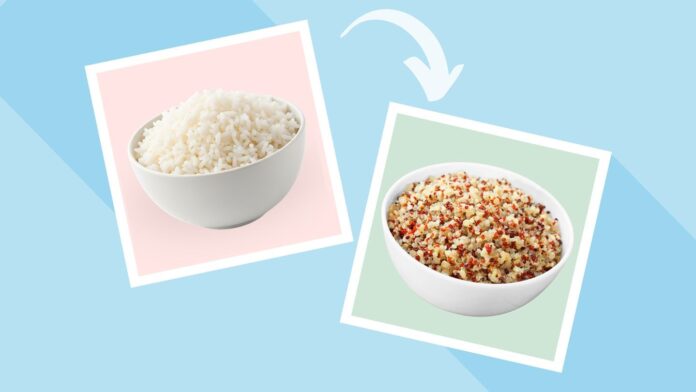If you’re trying to lose weight or improve your diet, you’ve likely considered cutting back on refined carbohydrates. These processed carbs, found in white flour, white sugar, and many packaged foods, have a significant impact on your health. But what exactly are refined carbs, and can avoiding them really help you lose weight? This article breaks down the science behind refined carbs, their health risks, and how to make sustainable swaps for a healthier diet.
What Are Refined Carbohydrates?
Refined carbohydrates are stripped of essential nutrients during processing. This includes refined grains (like white rice and white flour) and refined sugars (like white sugar and high-fructose corn syrup). Unlike whole foods such as fruits, vegetables, and lean proteins, refined carbs lack fiber, vitamins, and minerals. They are a staple of ultra-processed foods, often containing artificial colors and preservatives.
The refining process removes the bran and germ from grains, which contain fiber, vitamins, and phytochemicals. Manufacturers may add some nutrients back (“enriched” products), but the nutritional value remains significantly lower than whole grains. Refined sugars are also heavily processed, often from cornstarch chemically converted to fructose.
How Refined Carbs Affect Your Health
Refined carbs are quickly digested, causing rapid spikes in blood sugar. This can lead to increased hunger, weight gain, and a higher risk of chronic diseases. Here’s a breakdown of the key health risks:
- Obesity: Rapid blood sugar spikes from refined carbs can increase appetite and lead to overeating. Studies show a direct link between refined carb consumption and weight gain, particularly belly fat.
- Type 2 Diabetes: Frequent blood sugar spikes place a strain on insulin production, potentially leading to insulin resistance and type 2 diabetes. People who consume high amounts of refined carbs and low amounts of whole grains are at higher risk.
- Heart Disease: Weight gain driven by refined carbs increases the risk of heart disease. A heart-healthy diet prioritizes whole grains, lean proteins, fruits, and vegetables.
- Mental Health: Some studies suggest a link between refined grain consumption and an increased risk of depression, potentially due to inflammation and negative impacts on brain health.
However, it’s not just about avoiding the bad. Replacing refined carbs with high-quality carbohydrates from whole fruits, vegetables, whole grains, and legumes (beans, peas, lentils) is linked to better physical and cognitive function, especially as you age.
Simple Swaps for a Healthier Diet
Cutting out refined carbs doesn’t have to be drastic. Here are some easy swaps you can make:
- Rice: Choose brown rice, quinoa, or lentils instead of white rice.
- Bread: Opt for whole-wheat or multigrain bread instead of white bread. Ensure “whole flour” is the first ingredient.
- Snacks: Replace chips with air-popped popcorn.
- Tortillas: Choose whole-wheat tortillas over white ones.
- Baked Goods: Select whole-grain muffins instead of pastries.
These small changes can make a big difference. If you find foods you enjoy and don’t feel deprived, cutting out refined carbs becomes sustainable.
The Bottom Line
Reducing refined carbohydrates like white bread, white rice, and sugary drinks can aid short-term weight loss and lower your risk of chronic diseases. Replacing them with whole grains, fruits, and vegetables provides more fiber and nutrients, keeping you fuller longer and stabilizing blood sugar.
Moderation is key. Small, sustainable swaps, like choosing brown rice over white rice, can support long-term weight management and overall health. A balanced diet that prioritizes whole foods over processed carbs is the most effective approach.
By making informed choices and prioritizing nutrient-rich foods, you can take control of your health and achieve sustainable weight management.
Sources: Everyday Health follows strict sourcing guidelines to ensure accuracy, using peer-reviewed studies, medical experts, and top institutions. Editorial policy ensures reliable and trustworthy content




















